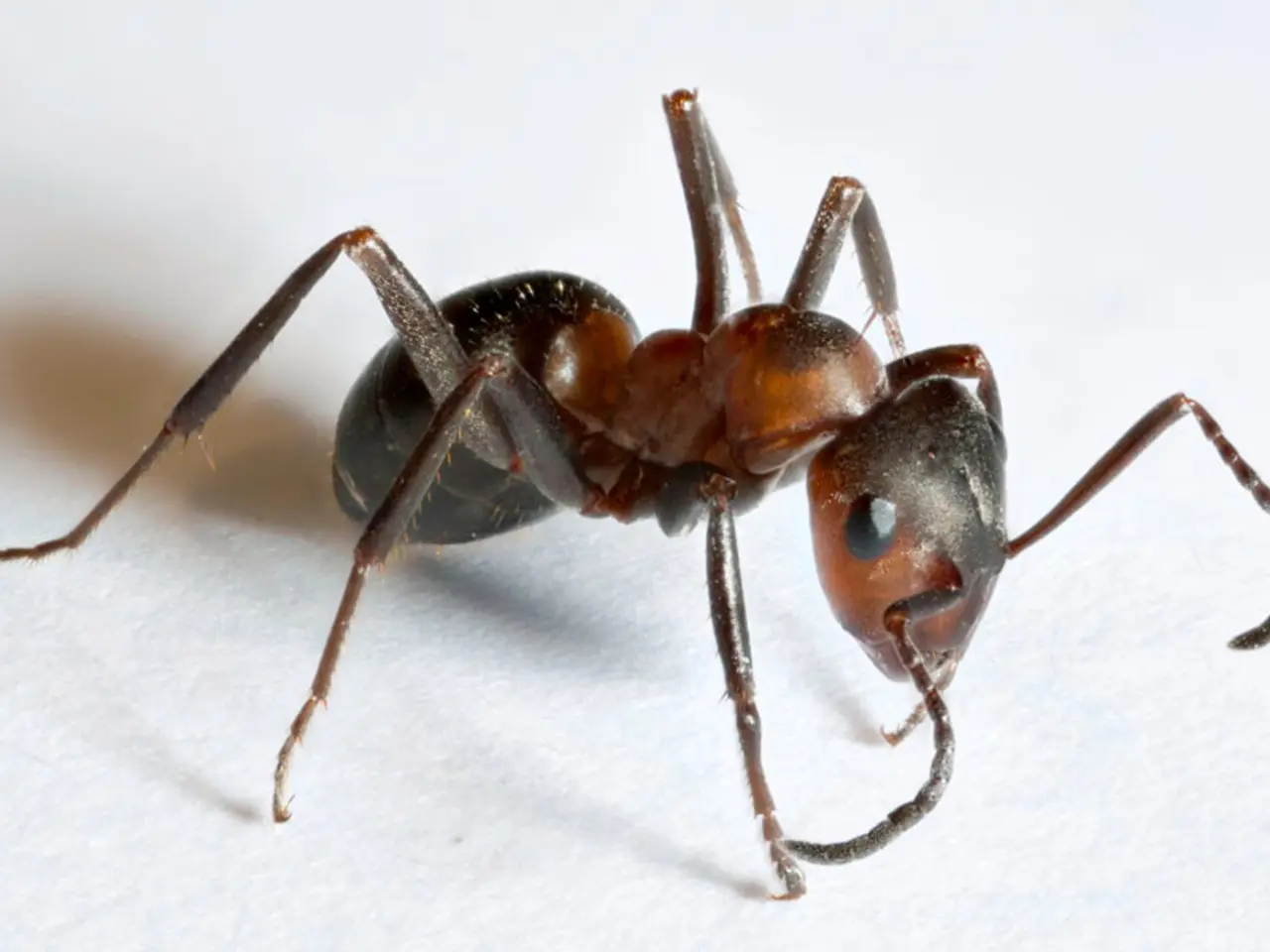Swift Strategies for Ant Eradication
In the quest to maintain a pest-free home and garden, it's essential to consider the impact of our choices on the environment. Here's a guide to naturally deterring ants without causing harm to beneficial insects or the ecosystem.
Ants, social insects in the Hymenoptera order, are an integral part of the garden ecosystem. They serve as a vital food source for various species, including birds and amphibians [1]. However, their presence can become a nuisance when they invade homes in search of sugary food or establish nests in your garden.
To locate the source of an ant infestation, try to see where they're travelling to or coming from. Once you've identified the area, you can implement natural deterrents to keep them at bay.
Cinnamon, citrus peel, or coffee grounds can be used near ant nests or common areas as a natural deterrent. Cinnamon contains cinnamaldehyde and eugenol, natural compounds that disrupt ants’ scent trails and disorient them, preventing them from reaching plants or homes [4]. Sprinkling cinnamon around plants or garden entry points creates a barrier that ants avoid, while being safe for beneficial insects.
Lemon juice and lemon peels contain d-limonene, which masks ant scent trails and confuses them. Applying lemon juice or rubbing peels on ant trails outdoors and indoors can reduce their presence without killing them, thus preserving garden biodiversity [3].
Vinegar mixed with citrus scents similarly disrupts ant navigation. This combination is effective as a spray and does not harm plants or non-target insects [2].
Peppermint-based sprays, often combined with gentle soaps like Castile soap, can repel ants and other insects. These sprays are safe for edible plants and maintain an inviting scent while deterring pests non-toxically [5].
These methods work by interfering with ants' chemical communication rather than killing them, which helps maintain the ecological balance and protects beneficial insects like pollinators naturally present in gardens [1][3]. Avoid using harsh chemical insecticides to preserve environmental health.
In your garden, non-toxically deter ants by using natural substances such as cinnamon powder, lemon juice or peels, vinegar, and peppermint spray, which repel ants without harming other insects or the environment.
For indoor ant problems, a few sprays of white vinegar solution (one part vinegar to three parts water) and wiping with a damp cloth can destroy ant pheromone trails and stop them in their tracks [6].
Remember, ants are never harmful to humans, children, or pets. By adopting these eco-friendly methods, you can maintain a pest-free home and garden while preserving the delicate balance of your ecosystem.
[1] University of California, Riverside. (2016, November 15). Ants are a vital part of the ecosystem. ScienceDaily. Retrieved May 26, 2023 from www.sciencedaily.com/releases/2016/11/161115123452.htm [2] Keller, J. (2018, February 28). Vinegar as an Ant Killer. The Spruce. Retrieved May 26, 2023 from https://www.thespruce.com/vinegar-as-an-ant-killer-2132879 [3] Keller, J. (2019, May 28). How to Get Rid of Ants with Lemon. The Spruce. Retrieved May 26, 2023 from https://www.thespruce.com/how-to-get-rid-of-ants-with-lemon-2133054 [4] Keller, J. (2019, June 26). How to Get Rid of Ants with Cinnamon. The Spruce. Retrieved May 26, 2023 from https://www.thespruce.com/how-to-get-rid-of-ants-with-cinnamon-2133052 [5] Keller, J. (2019, August 14). How to Get Rid of Ants with Peppermint Oil. The Spruce. Retrieved May 26, 2023 from https://www.thespruce.com/how-to-get-rid-of-ants-with-peppermint-oil-2133053 [6] Keller, J. (2019, July 10). How to Get Rid of Ants with Vinegar. The Spruce. Retrieved May 26, 2023 from https://www.thespruce.com/how-to-get-rid-of-ants-with-vinegar-2133051
Embracing companion planting as a part of your home-and-garden lifestyle can help prevent ant infestations. For example, planting certain herbs around vegetables can confuse ants, diverting them away from sensitive areas.
Realizing the importance of maintaining a balanced ecosystem, incorporating natural ant deterrents like cinnamon or lemon in your companion planting strategy can keep pests at bay without posing a threat to beneficial insects or the environment.



